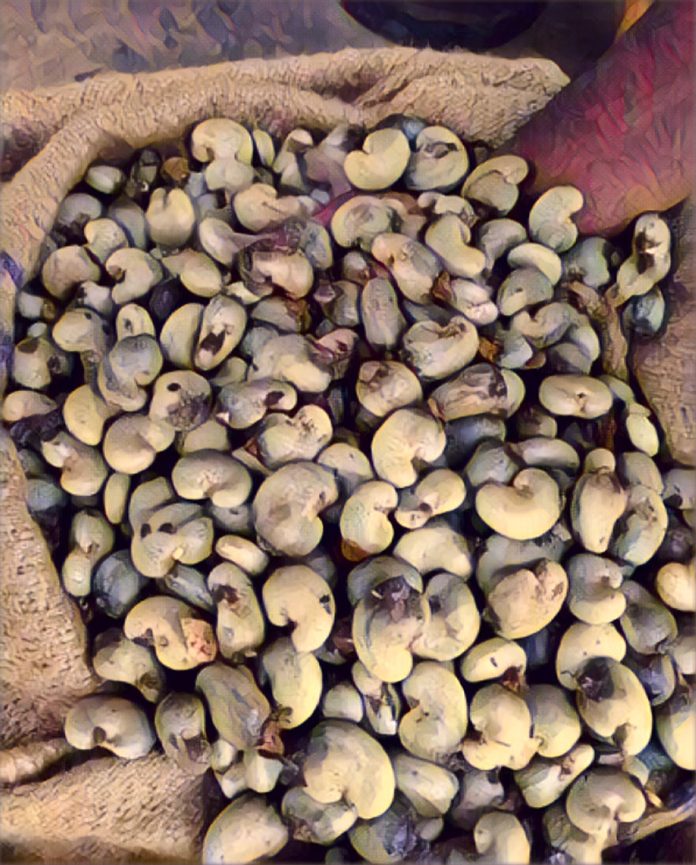KEY POINTS
-
Cashew farming in Kogi and Kwara is driving rural economic growth and earning Nigeria over $500 million annually in foreign exchange.
-
The crop is a major focus of the Zero Oil Plan, with national efforts underway to expand production, improve processing, and boost exports.
-
Experts call for more local investment in value addition to maximize profits, create jobs, and make cashew Nigeria’s top non-oil export.
In the rust-red heartlands of Kogi and the fertile plains of Kwara, a quiet agricultural revolution is taking place—one that is beginning to challenge Nigeria’s traditional reliance on crude oil.
Driven by rising global demand and sustained local efforts, cashew farming in these North Central states is emerging as a significant contributor to Nigeria’s non-oil export economy.
Cashew: Nigeria’s hidden export giant
Nigeria is the fourth-largest producer of raw cashew nuts in the world, after Ivory Coast, India, and Vietnam. According to data from the National Bureau of Statistics (NBS) and the Nigerian Export Promotion Council (NEPC), cashew exports generated approximately $500 million in foreign exchange earnings in 2024, a nearly 20% increase from the previous year.
Much of this growth is being led by smallholder farmers and cooperatives in Kogi and Kwara, who together account for over 60% of Nigeria’s total cashew production.
Kogi State, particularly areas like Okene, Olamaboro, and Dekina, has witnessed a significant transformation in rural livelihoods due to cashew farming.
In Kwara, communities in Offa, Oyun, and Kaiama are also benefitting from a new wave of agro-entrepreneurship centered around the high-value nut.
A crop powering jobs, rural infrastructure
Cashew farming is not only creating wealth for farmers but also powering a ripple effect of economic development. Processing centers in Kogi and Kwara now employ thousands, including a growing number of women who dominate the shelling and packaging sectors.
The NEPC’s ‘Zero Oil Plan’, launched in response to volatility in global oil markets, lists cashew as one of Nigeria’s 22 strategic export products. Under this initiative, the farmers in the region have received training in post-harvest handling, value addition, and access to new markets.
In collaboration with international development partners like GIZ, USAID, and the African Cashew Alliance, local cooperatives have been able to negotiate better prices and move up the value chain.
One of the notable beneficiaries has been women entrepreneurs, who are increasingly leading micro-processing ventures that turn raw cashew nuts into roasted snacks, butter, and even cashew apple juice—a product gaining traction in domestic markets.
Climate resilience and the road ahead for Cashew production
Beyond its profitability, it is also gaining recognition as a climate-resilient crop, capable of thriving in dry, marginal soils. This makes it particularly suited for areas facing the brunt of desertification and erratic rainfall due to climate change.
The Federal Ministry of Agriculture and Food Security recently launched the National Cashew Expansion Program (NCEP), which aims to plant 10 million new cashew trees by 2030. The program also includes a ₦15 billion Cashew Value Chain Fund to support mechanization and establish new drying and storage facilities.
However, challenges remain. The majority of Nigerian cashews are still exported raw to India and Vietnam, where they are processed and resold at a much higher value. Experts argue that to fully capitalize on its cashew potential, Nigeria must invest more aggressively in local processing capacity and logistics infrastructure.
There is also concern about access to finance. While commercial banks have begun to show interest in agribusiness, small-scale farmers still face hurdles in obtaining affordable credit for expansion.
Global outlook and future potential
Global demand for cashews is projected to grow at over 5% annually, fueled by increasing health consciousness and dietary shifts toward plant-based proteins. Nigeria is strategically positioned to benefit, but only if it addresses structural bottlenecks such as export logistics, road networks, and rural electrification.
In 2024, the Lagos-Kogi-Kwara cashew corridor saw over 200,000 metric tonnes of cashew nuts exported, with volumes expected to rise in 2025. Experts believe that if current momentum is sustained, it could become Nigeria’s second-largest export earner after crude oil within the next five years.
As oil prices fluctuate and Nigeria seeks to diversify its economy, cashew farming in Kogi and Kwara is offering a new blueprint—one rooted in local knowledge, environmental sustainability, and inclusive growth.



